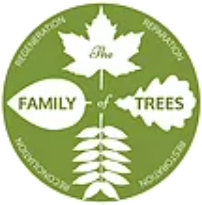We’ve all seen the lists of things we can do to reduce waste at home – bring a reusable bag to the store, recycle, buy in bulk, compost food scraps, buy less stuff – and the list goes on. Many of us have taken some of these steps toward waste-free living. What is it that keeps us from making more of these lifestyle changes? Are there simply too many to make? Is it hard to know which choices will have the most impact? Are some of the choices more expensive or less convenient than their more environmentally sound alternatives?
Unfortunately, we live in an era of convenience. For many, if it is not convenient, it is not worth the effort. Yet, this convenience took some planning and effort to get us where we are today. In that case, perhaps with our own planning and effort, we could create more convenient systems that are also cost-effective and environmentally beneficial.
For example, let’s look at how we handle our food scraps. Throwing food scraps away is certainly convenient. But when we throw our food scraps in the trash we fail to realize the environmental benefit of reducing our waste by composting them to create new, rich soil.
In the beginning, it may seem like composting food scraps is not as convenient as throwing them away where your trash hauler will just pick it up and take it all to the landfill. Yet, for the small effort of committing to a new system such as composting, you will be rewarded with rich, healthy soil and likely a lower trash bill. It is really as simple as setting up a compost bin in the backyard, finding a cute pail that you like to sit on your counter or under your sink to collect the scraps and stirring the compost now and then. Once that system is in place, all that’s left is a walk out to the yard every few days and the wait for some rich, wonderful soil.
The environmental benefits of composting are huge. After your initial investments in a compost bin, it won’t cost you a dime. In addition, depending on where you live, you may be able to reduce your garbage bill by having less garbage. Talk to your waste hauler about this option.
Try to approach the choices you make in your daily lives by weighing the cost, convenience, and environmental benefit of your actions. You can then determine which of these choices might make the most sense for you to make those small efforts to change the way you do things at home and at work.
Compost Bins Available at:
www.composters.com
1-800-233-8438
Southside Farm Store
St. Paul, MN
612-271-2761
Ecogarden Supply
St. Paul, MN 55108
651-647-1896
Mother Earth Gardens
Minneapolis, MN
612-724-2296
Dakota County Eco Site
Eagan, MN
952-891-7020
Carver County Environmental Center
Chaska, MN
952-361-1835 or 952-361-1800







